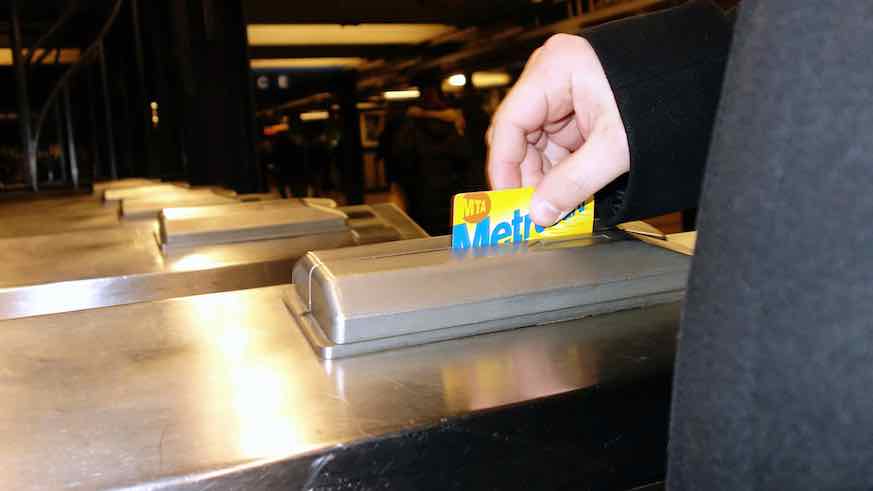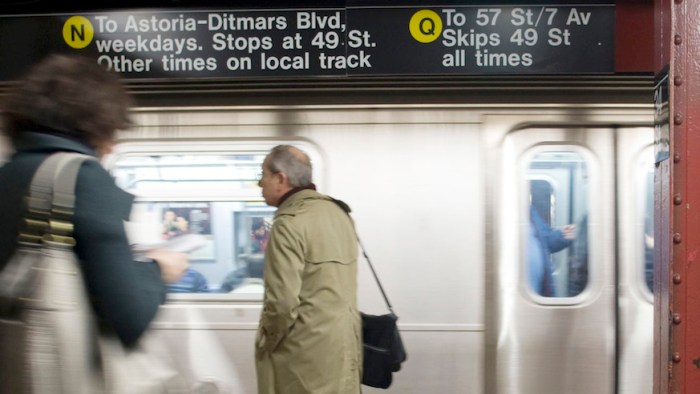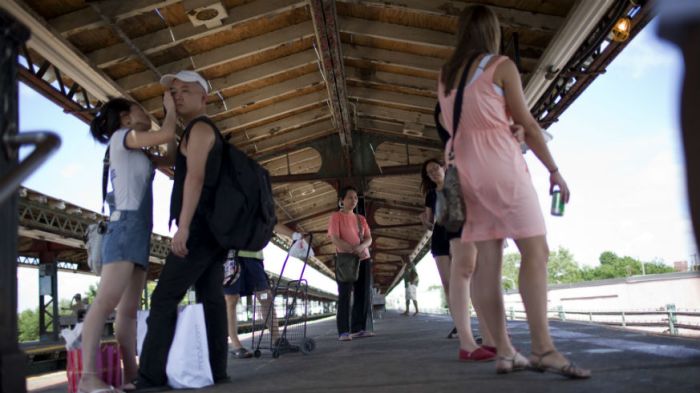Last year, the Metropolitan Transportation Authority issued a Request for Proposals for a new Fare Payment System. Funding of $419 million to support this project was included in the $32 billion MTA 2015 – 2019 Five Year Capital Plan. This new fare collection system could be made through either smartphones, bank cards or MTA issued smart cards. In 2015, the proposed original project schedule called for testing in 2018, initiation of implementation in 2019 followed by substantial completion in 2021.
Two years later, both the budget and schedule appear to have been overly optimistic, just like other MTA NYC Transit new technology projects. MTA awarding a contract for $573 million to Cubic Transportation Systems may not be the best use of these dollars. The new anticipated completion date has slipped two years to 2023. The budget went up by $154 million. Not a great start budget or schedule wise for this project. How will riders without smart phones accompanied with software such as Apple Pay, Android Pay, Samsung Pay or Pay With Google, debit cards or credit cards embedded with chips that rely on wireless technology known as near field communication use this new system? Not all students, seniors, poor and working class riders have these options. Why will Cubic Transportation Systems open up a call center in Buffalo to support future customers using this new fare collection system with so many out of work NYC residents looking for employment?
These dollars might have been better spent toward fully funding the emergency $836 million “Subway Action Plan” to deal with today’s crises. It could also have been used as a down payment against the $17 billion shortfall toward $20 billion needed to bring the subway signal system up to a state of good repair. What good does a new fare collection system do if you are still stuck on the platform waiting for a train. Funding for this project could have been postponed till the next MTA 2020 – 2024 Five Year Capital Plan.
Consider the $202 million contract award for a new NYC Transit Bus Radio System to support a fleet of 6,000 buses several years ago. The award was over one year late, based upon the original base line project schedule. This was due to delays in project scope development, progression of design and engineering along with timely completion of the procurement process. Success of this project is also dependent on coordination with and timely completion of the upgraded $150 million NYC Transit East New York Bus Command Center. Funding provided for both includes project milestones under grants from the Federal Transit Administration. The base bid award also included an option clause which has been executed to cover 1300 buses operated by MTA Bus. These buses operate on routes previously served by Green Bus Lines, Jamaica Buses, Triboro Coach, Queens Surface, Command Bus, New York Bus and Liberty Lines Bronx Express private bus operators. Purchasing similar equipment for MTA Bus may have added an additional combined $50 million to both base contracts.
NYC Transit has a poor track record for new technology projects when it comes successful completion on time and within budget. Previous projects such as Public Address Customer Information Systems, Automatic Train Supervision, Communication Based Train Control and Underground Police Radio systems combined costs totaled close to $1 billion dollars. All four projects suffered significant delays during project scooping, design and engineering, procurement process, actual construction followed by installation and testing. This resulted in each being completed several years beyond the original project date milestone schedules as contained in the first federal grants which provided funding for many of these projects. The final bill ended up above each Project Engineer’s original cost estimate accompanied by change orders impacting budgets. The first CBTC installed on the Canarsie L subway line suffered from many of these problems. The second CBTC is in the process of being installed on the Flushing #7 subway line may also be a victim from many of the same problems and issues. It was supposed to have been completed and be running by October 2016. Riders are still waiting to see the full benefits.
The previous bus radio system project contract was awarded to Orbital Sciences Corporation in 1996. Funding was provided under a Federal Transit Administration grant. Project scope of work included design, construction and installation of a bus arrival monitoring system. After four years of continued delays combined with unresolved challenges of interference by high rise Manhattan buildings, the contract was terminated and project canceled.
Both the new Bus Radio System and accompanying East New York Bus Command Center projects due to their complex scope have always been at risk for completion several years later than promised. Ditto for project budgets which may grow over time due to delays and change orders. The same may hold true for the new Fare Payment System.
Both the MTA NYC Transit and Federal Transit Administration also have independent engineering consultant firms to supplement in house staff. These companies previously provided both oversight and technical assistance for ongoing capital projects. Engineering firms which monitor the progress of these and other major capital projects prepare monthly progress reports for both MTA NYC Transit and Federal Transit Administration senior management teams and in house project oversight staff.
Both the Bus Radio System and East New York Command Center projects continue to provide updated Quarterly Financial and Milestone Progress Reports to the Federal Transit Administration. They are also supported by both MTA NYC Transit and FTA independent engineering firms who are providing oversight and technical assistance. They also issue their own monthly progress reports. A review for any of these documents would confirm that both the new Bus Radio System and companion East New York Bus Command Center are already many months behind the original agreed upon contractor construction and installation schedules. All of these reports document past history and current status of these projects.
Let’s hope that MTA NYC Transit have learned from earlier problems that plagued new technology projects. Taxpayers and commuters are counting on the MTA NYC Transit being able to complete the Bus Radio System, East New York Command Center and new Fare Payment System technology projects with each contractor based upon the agreed baseline budgets and detailed contract schedules.
The MTA NYC Transit should continue to be more transparent with its own Board, elected officials, riders, taxpayers and transportation advocates on these and other capital procurements. The same is true for better oversight for third party contractors, maintenance of schedule and project budgets.
Larry Penner is a transportation historian and advocate who previously worked 31 years for the U.S. Department of Transportation Federal Transit Administration Region 2 NY Office. Send him your transit questions by emailing letters@metro.us.

























